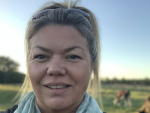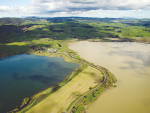The Waikato Regional Council is now planning to work with the farmers as they apply for necessary water take consents required under its Variation 6 policy on water allocation.
The council's policy and strategy committee yesterday heard the period for appeals to be lodged against the variation endorsed by the Environment Court had now passed and that no High Court appeals had been lodged.
The new variation maintains the existing requirement that farmers taking more than 15 cubic metres of water a day for dairy shed wash down and milk cooling must have resource consent. Some 3500 farmers in Waikato who do not currently hold such a consent will need to obtain one.
Under Variation 6, farmers who had been taking more than 15 cubic metres a day for dairy shed wash down and milk cooling as at October 2008 will generally have the amount taken in 2008 "grandparented" providing they meet a range of conditions, such as applying for a consent within a specified deadline, developing a riparian management plan (if the take is from surface water) and excluding stock from waterways.
Also, in catchments where rivers and streams are already over allocated, any new water take will require consent even if it is less than 15 cubic metres a day. Previously, taking up to 15 cubic metres per day has generally been an "as of right" permitted activity, and will remain so in catchments that haven't been fully allocated.
The council now has the job of implementing the new policy and this will take a significant amount of work.
The council's resource use division manager Brent Sinclair said his team was doing detailed planning to ensure farmers in different areas are aware of their responsibilities under Variation 6, and to work with the agricultural sector to develop the most efficient way for farmers to meet those responsibilities. In due course, farmers will be contacted to advise them how to proceed through the consenting process.



















